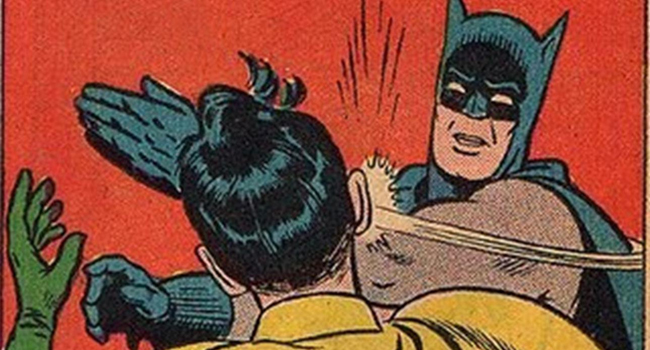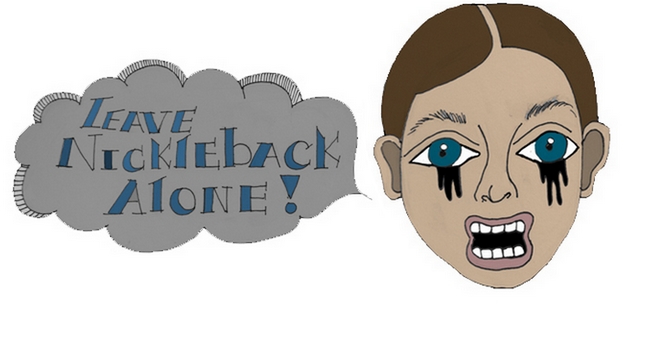A recent press release from a Chicago venue in the heart of Wrigleyville, The Cubby Bear, announced a show with the band Redlight King, and also indicated that The Cubby Bear will also be celebrating their “long-standing relationship with Chicago’s Alternative, Q101.”
Those familiar with the changes afoot in the Chicago radioscape this summer may be scratching their heads, thinking: “Didn’t Q101 stop playing alternative rock in mid-July and switch to an all news talk format?”
Yes, and no.
WKQX-FM is no longer broadcasting as Q101, but, according to the release: “Chicagoland-area radio entrepreneurs Matt Dubiel and Mike Noonan stepped in and purchased the Q101 brand. They intend to continue its legacy as a rock music and media powerhouse online, via mobile apps, social media and at area events,” including this concert.
The press release went on to say: “The Cubby Bear is inviting one and all, including staffers affected by format change on 101.1 FM, to attend a huge, kick-ass party celebrating the legacy of Q101, which will feature the rocking Canadian band, REDLIGHT KING.”
No, we’ve never heard of Redlight Kings either, but apparently they are rocking and they are Canadian. Their current “hit” is supposedly a respectful (but rocking!) version of Neil Young’s “Old Man.” Those dang Canadians. They played a 21-and-over show on Aug. 19 at The Cubby Bear.
The release also indicates that, at the show, there was a giveaway of a pair of tickets to sit in the Q101.com Suite at the First Midwest Bank Amphitheatre for the Blink-182 show the following evening, “as a further testament to the Q101 brand living, rather than dying.”
The release goes on to say that Q101 “has moved into the 21stCentury and is evolving into a lifestyle brand that “goes where its fans go,” living online and via mobile distribution.
In an interview with Dubiel published July 15 by Radio Ink, Dubiel said, “This is the future. By 2015, radio signals will be irrelevant. People will have radios on them in their mobile devices.”
This strongly echoes what new 101.1 FM owner Randy Michaels said in his statement, that music is moving to iPods (see Pop ‘stache’s “Meet The ‘New’ Radio Boss—Same As The Old Radio Boss”), but it sounds like Dubiel is taking it a step further.
Is radio a dinosaur, destined to become extinct from relevance by the asteroid-like impact of the Internet and the ubiquity of mobile devices?
Is radio still important? If so, why?
As alluded to in “Meet The ‘New’ Radio Boss—Same As The Old Radio Boss,” Chicago’s newest independent radio station, www.chirpradio.org, is a non-profit, noncommercial, community radio station that plays a vast array of music, sort of an “alternative to alternative,” or a college radio station for grown-ups, with all of the eclecticism and experimental music featured that one might expect, and a lot that one wouldn’t.
Chicago Independent Radio Project (CHIRP) was recently chosen as Chicago’s best “web radio station” by Chicago Magazine, and voted best “overall” radio station in a survey conducted by The Chicago Reader, beating out commercial stalwarts like WXRT-FM 93.1 and noncommercial NPR outlet 91.5 WBEZ-FM. But CHIRP is aiming for exactly the opposite direction that Q101 has gone.
While successfully lobbying for the passage of the Local Community Radio Act (LCRA) and awaiting the opportunity to obtain a broadcast license from the Federal Communications Commission (FCC), the station started streaming live music 21 hours a day on January 17, 2010.
Although passage of the LCRA opened up the broadcast dial to community broadcasters throughout the United States, the situation in radio-saturated markets like Los Angeles, New York and Chicago is much more complex. The broadcast dial is far more crowded in such markets, and thus community radio organizations like CHIRP will have to be granted special authorization to obtain a license to use an FM frequency. Major commercial outlets have in the past voiced concerns that even a small 100 watt transmitter would interfere with the strength of their transmissions, although that concern has apparently been repeatedly debunked.
Regarding the FCC, although the LCRA is now law, there are more than 6,000 translator licenses pending, and if those are granted before community organizations, translators could use up all the space available for community radio, especially in cities where the FM dial is already crowded. Translators are small stations (under 250 watts) that repeat what’s on another station. If all the translator applications are processed before community radio has a chance to apply for channels, translators could use up all the space available for community radio, especially in cities where the FM dial is already crowded.
On July 12, the FCC made a proposal that could ensure that translator applications won’t prevent new community groups from having a chance to start stations in the largest cities in the country. Their plan attempts to protect the future of low power community radio, but it’s only a proposal—there was a public comment period open through Aug. 29.
CHIRP founder and president Shawn Campbell, reached via e-mail, was asked why she and her colleagues chose to launch CHIRP Radio online first and responded that “online listenership has grown by leaps and bounds even since I founded CHIRP in 2007,” and “listening options have expanded greatly with the advent of smartphones, tablet computers, the iPod Touch, etc.” Although at their inception their entire focus was toward the Low-Power FM (LPFM), Campbell and her colleagues “quickly realized that we were wasting an opportunity to get the station established online” since the plan was always to stream online as well.
“Radio’s death has been predicted a million times, so I don’t think terrestrial radio is going anywhere, despite the rise of MP3 players, online streaming services like Pandora, or web-based radio stations,” Campbell said. She believes broadcast radio’s appeal always has been its “live and local nature” and when large corporations purchased such huge numbers of stations, and started programming them centrally, those strengths were diminished.
Rather than being concerned about the death of radio, she is actually optimistic that “the large corporate owners like Clear Channel and CBS will find that owning hundreds of stations doesn’t make financial sense any longer, and will start selling them off.” Campbell doubts that “we’ll get back to the days of the true mom-and-pop-owned station, but I do hope that such a sell-off would result in an improved diversity of mid-sized owners, and therefore, more variety in programming.”
And why is broadcast radio a better option than just being an online radio station? After all, that is the eventual goal of CHIRP. Campbell argues that one of the main strengths of having a radio signal is ease of access, that it’s “very easy for us to believe that everyone has access to a computer that plays audio or a smartphone, but that’s just not the case.” Although the technology is getting cheaper, she sees broadcast radio as a nearly universal medium, while “those who don’t have web access are shut out from listening to web-based stations.”
In addition, the majority of radio listening happens in cars, and although Campbell says that web access is on its way, “we’re still some years away from it being universal.” Although some can rig up their smartphone to play through their car’s speakers, “it’s not as easy as pushing a single button to listen to your favorite broadcast station.”
She is quick to point out another distinction between the opposite directions that CHIRP and Q101 seem to heading:
Q101 didn’t move to the web because they saw it as the wave of the future; they moved to the web because their corporate owner wasn’t making the money they believed they should’ve been with the signal, and sold it to another owner who changed the format. Typically what we’ve seen when large commercial broadcast stations go web-only (generally after a sale or a format change) is that they rapidly devolve into bland, jockless jukeboxes … and the “station” is just a stream of songs with no context or personality.
Campbell continued:
We at CHIRP believe in live and local radio, and that’s the type of radio we’re producing. It doesn’t matter to us that we’re online and that people can hear us all over the world; we wanted to build a station with a firm sense of place in Chicago. And right now, we think that our best option would be to have both the stream and a broadcast license in order to serve that community most effectively. But if we never end up getting a broadcast license, we won’t have failed—as time moves forward, technology will move more and more in our direction.
But for now, just like Q101, you can’t hear CHIRP in your car either.
Yet.



